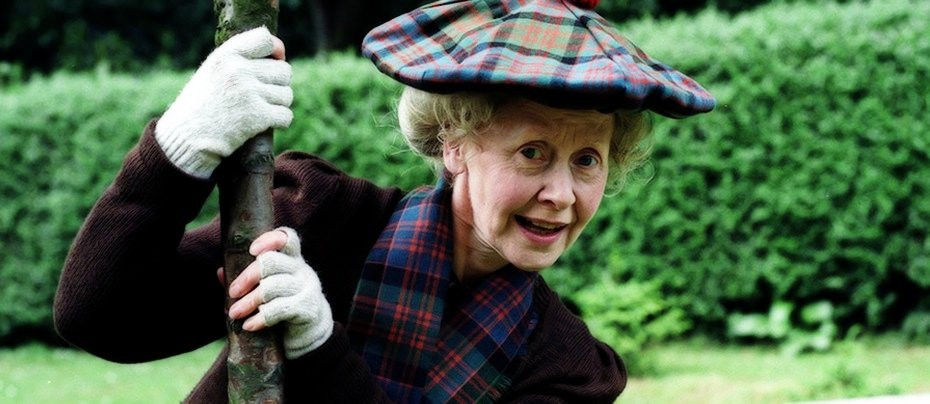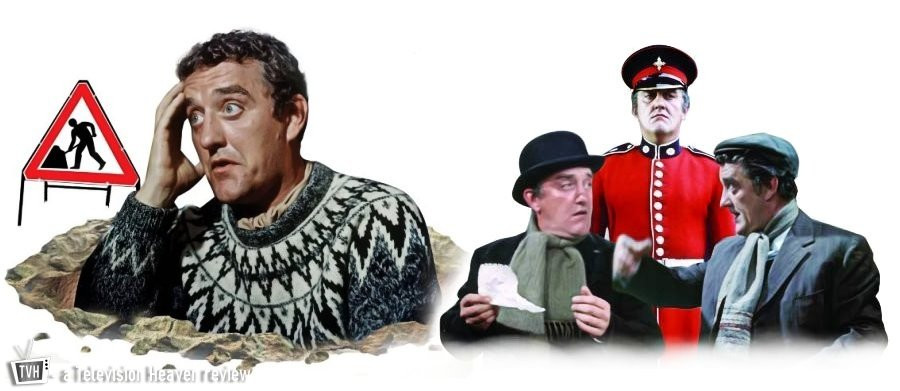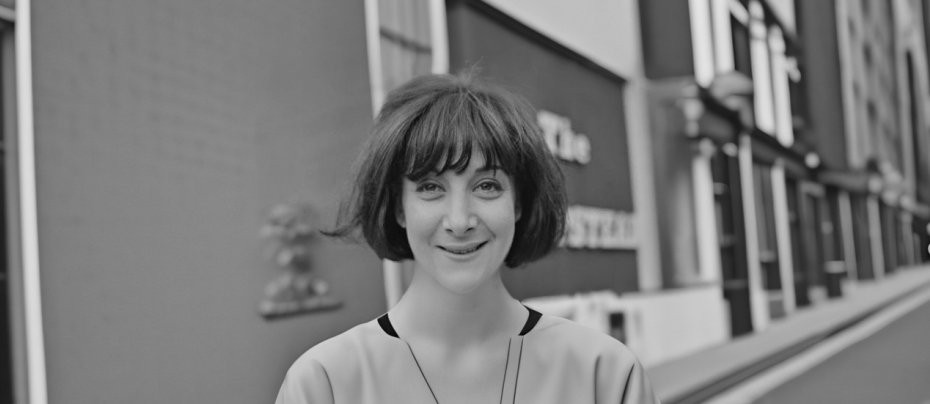
Sheila Steafel
A highly versatile and enchanting character actress renowned for her exceptional comic timing, Sheila Steafel became a household name as the prominent female cast member of the seminal satirical television programme, The Frost Report (1966-67), where she worked alongside emerging talents such as the two Ron's - Corbett and Barker and the incomparable John Cleese.
Following The Frost Report's success — which earned a Golden Rose of Montreux, Steafel became highly sought after for guest roles in various comedy series and shared the screen with many leading TV comedians of her era, including Roy Hudd, Tommy Cooper, Bernard Cribbins, Frankie Howerd, Dave Allen, Peter Cook and Dudley Moore (in Not Only...But Also), Kenny Everett and Spike Milligan.
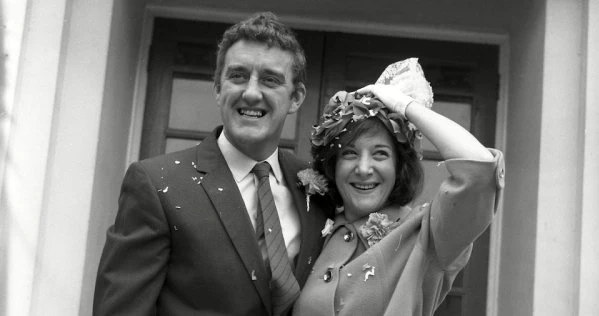
Steafel also excelled on stage through one-woman shows at the Edinburgh Festival and numerous London theatres. In productions like The Late Sheila Steafel (1981), Steafel Solo (1982), Steafel XPress (1985), and Victoria Plums (1995), she masterfully delivered comedic songs and monologues penned by esteemed writers including David Nobbs, Keith Waterhouse, Barry Cryer and Andy Hamilton.
Sheila Frances Steafel was born the younger of two children, to British parents Harold, a garage owner from Lancashire, and his wife, Eda, in Johannesburg on 26 May 1935. Professional theatre was scarce, yet Harold revelled in staging community productions, with a fondness for Gilbert and Sullivan operettas. Sheila, a constant backstage presence, absorbed the enchantment of these performances. With a mother who graced the piano keys with finesse, Sheila’s upbringing was steeped in theatrical and musical influences.
Steafel went to Barnato Park school in Berea, where she almost got expelled on one occasion for writing a risqué pantomime! Then she headed off to Witwatersrand University to study fine art, but instead of following that plan, she left South Africa for Britain, arriving in 1953 to try out for London's Royal Academy of Dramatic Art (RADA). They told her she was too unique and might only make it big as a character actor in her 30s. Not one to be easily discouraged, she joined the Webber Douglas Academy instead and landed the Margaret Rutherford award for comedy there.
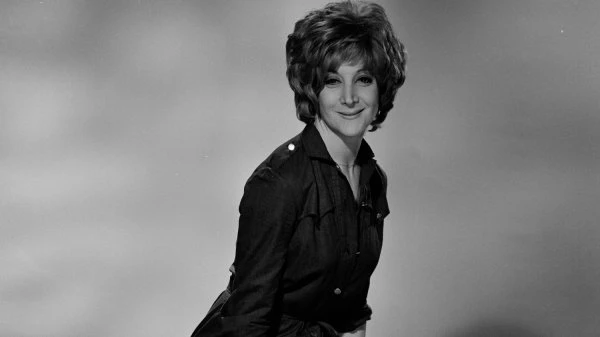
Following her graduation and experiences in repertory theatre in Blackpool and Lincoln, in 1959, she worked as an usherette at the famous Players’ Theatre in Charing Cross. This historic venue showcased Victorian music hall shows and showcased the early talents of such stars as Hattie Jacques, Bill Owen, Ian Carmichael, Clive Dunn, Leonard Sachs, James Robinson Justice, Patsy Rowlands and Maggie Smith. With growing confidence, she finally mustered the courage to request an audition, which she successfully passed.
She soon blossomed into a skilled comedic performer, giving life to Miss Popsy Wopsy, a character who was a charmingly disoriented and clumsy young woman – a music hall artist who consistently missed the pitch and rhythm, yet captured the audience’s affection with her endearing imperfections thanks to Steafel’s exceptional comic timing.
She made her small screen debut in 1957 in a light entertainment programme, Jack Hylton’s Monday Show and began to pick up guest appearances on such shows as Probation Officer, Hugh and I, Sykes and A…, and Danger Man. In October 1958 she married the actor Harry H. Corbett – but that marriage ended in divorce in August 1964. In 2010, she released her autobiography When Harry Met Sheila. Steafel never remarried.
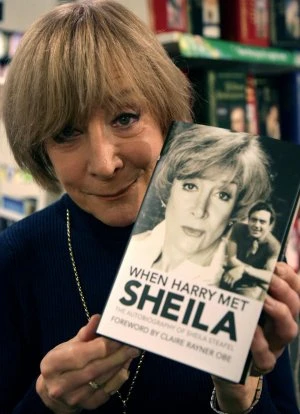
Steafel’s West End debut came in 1961, when she took over the role of Barbara opposite Tom Courtenay in Billy Liar. On stage she gave a memorable performance as Mistress Quickly in an RSC production of The Merry Wives of Windsor, played Meg in the Birthday Party at the Bristol Old Vic and Mrs Brice in Funny Girl in Chichester, going on to perform despite needing spinal surgery. She played opposite Robert Morley in How the Other Half Loves at the Lyric, and she was cast as a female Harpo Marx in A Day in Hollywood, A Night in the Ukraine, for which she won rave reviews.
Her film appearances included Daleks' Invasion Earth 2150 A.D. (1966), Quatermass and the Pit (1967), Goodbye, Mr. Chips (1969), Percy (1971), Digby, the Biggest Dog in the World (1973), Never Too Young to Rock (1975), Are You Being Served? (1977), and Back to the Secret Garden (2001). In 1974, she co-starred with Michael Robbins and Arthur English in the sitcom How's Your Father but her best remembered role is that of The White Lady in the teenage comedy caper The Ghosts of Motley Hall from 1976 to 1978. In 1979 Steafel co-starred in another sitcom, this time with Terrence Hardiman in a comic tale of Charles Pooter and his wife Carrie, a middle-class couple living in London towards the end of the 19th Century, titled Diary of a Nobody.
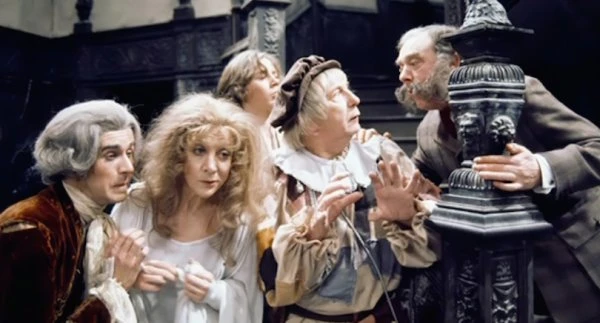
Steafel made significant contributions to BBC radio. During the 1970s and 1980s, she was a cast member on the weekly Radio 4 satirical show Week Ending. Her versatile talent allowed her to provide voices for numerous characters and skilfully impersonate real-life figures, including Margaret Thatcher. She also supplied the voice of Wellington in the animated series of the Daily Mirror comic strip The Perishers and later still her vocal talents were put to good use in SuperTed. In 2015 she lent her voice to the character Master Matoya in the video game Final Fantasy XIV: Heavensward.
Meanwhile she enjoyed a rewarding interest in art, and enjoyed a second career as a portraitist, which took off after she was commissioned to paint Sir Michael Hordern for the Garrick Club.
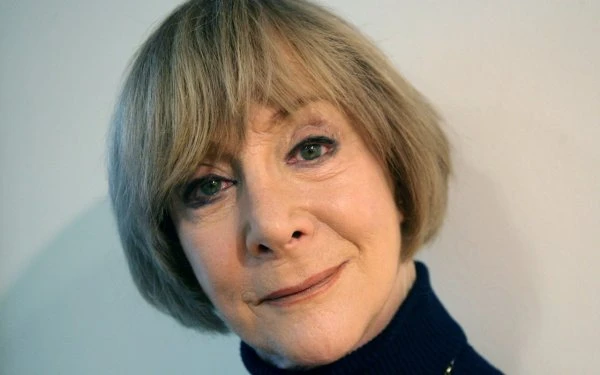
In the 1980s, Steafel shone in her role as a commanding literary agent, championing the emerging novelist Diane Keen. As the narrative unfolds in the sitcom You Must Be the Husband, Keen’s character begins to eclipse that of her on-screen husband Tim Brooke-Taylor, adding a twist to the tale. Between 2005 and 2016 she appeared in 8 episodes of the daytime drama series Doctors and her last television role was in a 2018 episode of Shakespeare and Hathaway: Private Investigators.
Sheila Steafel passed away on 23 August 2019 after losing a brave battle with Leukaemia. She was 84 years old.
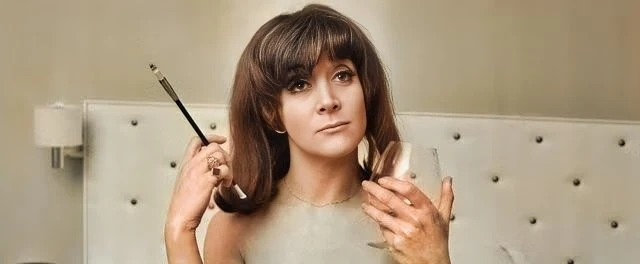
Sheila Steafel captivated audiences as a versatile character actor, her unique features a canvas for the roles she embodied. Her high cheekbones and angular mouth were adept at conveying sardonic humour and sharp retorts with ease. The slight droop of her eyelids could convey an air of naive curiosity or a bewitching allure, each glance infused with playful mischief or an insightful sparkle. Her voice, a versatile instrument, could traverse the emotional spectrum from soft murmurs to commanding peaks, all delivered with impeccable clarity and poise. Steafel’s performances left an indelible mark, showcasing her remarkable range and the singular charm that made her truly one-of-a-kind.
Published on May 27th, 2024. Written by Laurence Marcus for Television Heaven.


